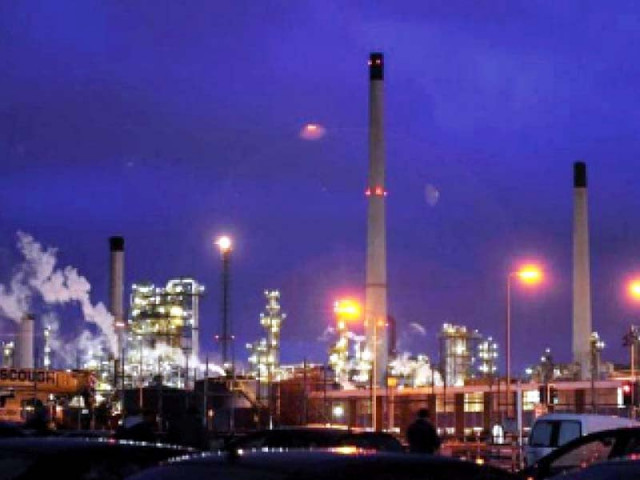Refineries dealt blow as incentives denied
CCOE forms body to deliberate further, give report in 10 days

Oil refineries have again been dealt a blow as the government refused to approve incentives for them after a long wait for three years. The Cabinet Committee on Energy (CCOE) on Friday approved a green field policy for new refineries in order to meet a demand of Saudi Arabia before the setting up of a new project. However, it shied away from offering incentives to brown field projects that would lead to the upgrading of existing refineries.
CCOE formed a committee to deliberate on the issue further, which would give its report in the next 10 days. Background discussions with the refining industry revealed that it was disappointed by the government’s decision not to give any incentives to the existing plants for enhancing their processing capacity. Industry officials pointed out that the objective of upgrading projects was the production of Euro-V standard fuels.
The cost of plant upgrade varies from $900 million to $1.5 billion. They emphasised that the upgrading of existing refineries could meet the same objective as the greenfield projects, and that too at one-tenth of the cost, saving foreign exchange. On the other hand, foreign investors are willing to inject equity only up to 30% of the project cost and the remaining 70% will be in the form of local/ foreign debt, which will lead to significant dollar outflows. The core objective of shareholders and the management of existing refineries would be to follow the most economically feasible route to meet the goal, they said.
Hence, “if the core objective of producing Euro-V fuels can be met through brownfield projects at a significantly lower cost than the greenfield projects, then that is the route that should be followed by the management, shareholders and policymakers in the best interest of the country and consumers.” A senior official of a refinery remarked that refineries had been waiting for the past three years for approval of the new oil refinery policy. The previous government had approved the new policy, but it reached a deadlock over the incremental revenue offered to the refineries investing in plant upgrade projects.
At that time, a group of politicians, led by Karachi-based ministers, was against approval of the draft policy. In the draft, the Petroleum Division pointed out that refineries were meeting 55% of Pakistan’s annual demand for petroleum products, including supplies for defence needs. They make annual foreign exchange savings of more than $1 billion and process about 70,000 barrels of local crude and condensate per day.



















COMMENTS
Comments are moderated and generally will be posted if they are on-topic and not abusive.
For more information, please see our Comments FAQ